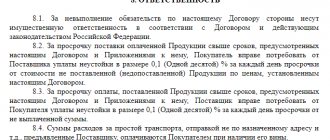Criminal punishment is not the only consequence of a crime. If the sanctions provided for by the Criminal Code of the Russian Federation are applied to the criminal, the victim will be able to claim appropriate compensation. The Constitution of the Russian Federation establishes guarantees for victims in the form of justice and compensation for harm.
Compensation is an extremely useful tool. We recommend enlisting the support of a professional lawyer to restore the violated rights and interests in full.
Compensation for harm from a crime: what is regulated
Compensation for harm has a dual nature: civil and criminal. The potential opportunity to receive compensation from a crime is enshrined in Art. 52 of the Constitution of the Russian Federation, which establishes that the rights of victims are protected by law.
The basic provisions on damage are established in Art. 1064 of the Civil Code of the Russian Federation. The article states that harm caused to a person through the fault of the other party is compensated in full. It is worth noting that this article does not lose its force in the framework of criminal proceedings.
Material liability of the employee
One of the employee’s responsibilities is to take care of the employer’s property (Article 21 of the Labor Code of the Russian Federation). If an employee, as a result of guilty unlawful behavior, causes damage to the employer, and the employer proves the fact and amount of such damage, the employee will bear financial liability (Article 233 of the Labor Code of the Russian Federation).
In general, the financial liability of an employee is limited to his average monthly earnings (Article 241 of the Labor Code of the Russian Federation), unless otherwise provided by the Labor Code of the Russian Federation or other federal laws.
In Art. 243 of the Labor Code of the Russian Federation names cases of full financial liability, when the employee is obliged to compensate for the damage caused in full. Cases of full financial liability include:
- causing damage intentionally or while intoxicated;
- shortage of valuables entrusted to the employee on the basis of a special written agreement or received by him under a one-time document;
- causing damage as a result of an administrative offense established by the relevant government body.
Cheat sheet on the article from the editors of BUKH.1S for those who do not have time
1. If an employee, as a result of guilty unlawful behavior, causes damage to the employer, and the employer proves the fact and amount of such damage, the employee will bear financial liability.
2. An agreement on full financial liability can be concluded only with an employee who has reached the age of 18 and services material assets.
3. Amounts received from an employee as compensation for losses or damages increase the employer’s income tax base.
4. The employer may forgive the employee for his violation and not demand compensation for the amount of damage caused. In this case, the employee does not have income subject to personal income tax.
5. If the person who caused damage to the company remains unknown, then the losses may reduce the organization’s income tax base.
An agreement on full financial liability can be concluded only with an employee who has reached 18 years of age and maintains material assets.
There are categories of employees with whom it is mandatory to conclude an agreement on full financial liability. The list of positions and works with full financial responsibility was approved by Resolution of the Ministry of Labor of the Russian Federation dated December 31, 2002 No. 85.
If the employee’s position is not included in the List, the employer has the right to recover damages only in the amount of average monthly earnings, even if a written agreement on full financial liability was concluded (Decision of the Supreme Court of the Russian Federation dated November 19, 2009 No. 18-B09-72).
Who is entitled to compensation for damages?
How can damages be compensated if criminal proceedings are designed to resolve issues of guilt and punishment, but not to recover damages? Very simple.
The law provides for the possibility of filing a civil claim within a criminal case. Art. 44 of the Code of Criminal Procedure of the Russian Federation establishes who can be a civil plaintiff. According to the article, any person (citizen or organization) who has suffered damage from a crime may demand compensation for the harm caused.
A civil claim for compensation for damages from a crime will be tied to the criminal case. This means that the plaintiff does not need to start the proceedings again - everything will be considered in one proceeding.
Moreover, the plaintiff does not need to draw up additional documentation and send copies to all participants - it is enough to submit an application to the court or to the investigator.
The right of the victim to compensation for property damage
Lawyer Antonov A.P.
In Part 3 of Art. 42 of the Code of Criminal Procedure of the Russian Federation, the legislator enshrined one of the important guarantees of respect for the rights of the victim in criminal proceedings. Here, in particular, it is said that “the victim is provided with compensation for property damage caused by the crime, as well as expenses incurred in connection with his participation during the preliminary investigation and in court, including expenses for a representative, in accordance with the requirements of Article 131 of this Code.”
Compensation for property damage caused by the crime, as well as expenses incurred in connection with his participation during the preliminary investigation and in court, including expenses for a representative, is “provided” to the victim. The legislator does not specify the methods of such provision, therefore this term can be understood as any activity of an investigator (inquirer, etc.) aimed at organizing compensation for the victim of property damage caused by a crime, as well as expenses incurred in connection with his participation in criminal proceedings. , court (judges).
Ensuring compensation to the victim for property damage caused by the crime, as well as expenses incurred in connection with his participation during the preliminary investigation and in court, is the active actions of the investigator (investigator, etc.), the result of which is real compensation to the victim for these material losses. The investigator (inquiry officer, etc.), the court (judge) must do everything possible on their part to ensure that the victim receives compensation in strict accordance with the requirements of the law. If the victim was not provided with compensation for property damage caused by the crime, as well as expenses incurred in connection with his participation in the criminal process, and the corresponding petition was filed, it should be considered that the investigator (inquiry officer, etc.), the court (judge) did not fulfilled their assigned duties.
Damage caused by the crime, compensation for which the investigator (inquiry officer) in accordance with Part 3 of Art. 42 of the Code of Criminal Procedure of the Russian Federation should have provided for losses and other harm.
Losses in this case are called:
1) loss, damage to property (real damage) of the victim, as well as
2) lost income that the victim would have received under normal conditions of civil circulation if his right had not been violated (lost profits) (Article 15 of the Civil Code of the Russian Federation).
It is recommended to consider other harm as the monetary value of physical as well as moral harm caused by a crime.
The legislator has provided several ways to compensate for damage:
1) civil claim in criminal proceedings (parts 2 and 3 of Article 44, part 6 of Article 246 of the Code of Criminal Procedure of the Russian Federation);
2) compensation for material damage at the initiative of the court;
3) imposition by the court of the obligation to make amends for the damage caused (clause “c” of Part 2 of Article 90 of the Criminal Code of the Russian Federation). The named method of compensation for damage is not fixed in the Code of Criminal Procedure of the Russian Federation;
4) the actual return of the stolen property to its owner (clauses 3, 5, 6, part 3 of Article 81 and subsection “b” clause 1, subclause “a” clause 2, subclause “b” clause 4, subparagraph “a”, paragraph 4.1, subparagraph “b,” paragraph 5, subparagraph “b,” paragraph 9, part 2, article 82 of the Code of Criminal Procedure of the Russian Federation);
5) voluntary compensation for material (moral) damage or otherwise making amends for the damage by the criminal or his relatives. And this method, despite its widespread use in practice, is not enshrined in the criminal procedure law. It is mentioned in paragraph “k” of Art. 61 and art. 75 of the Criminal Code of the Russian Federation. According to data conducted by V.A. Azarov's research shows that in 22.4% of criminal cases, material damage was compensated voluntarily by the accused or his relatives.
The Code of Criminal Procedure of the Russian Federation does not directly speak about compensation for material damage at the initiative of the court, however, it contains a number of provisions that allow us to say that the court has at least such a right. So, according to Part 3 of Art. 42 of the Code of Criminal Procedure of the Russian Federation, the victim is provided with compensation for property damage caused by the crime. A civil claim may be filed before the end of the judicial investigation during the trial of a criminal case in the court of first instance (Part 2 of Article 44 of the Code of Criminal Procedure of the Russian Federation). According to Part 1 of Art. 44 of the Code of Criminal Procedure of the Russian Federation, the decision to recognize a civil plaintiff can be formalized by a court ruling or a judge’s ruling. The court is entrusted with the obligation, at the stage of preparing the case for the court hearing, to find out whether measures have been taken to ensure compensation for damage caused by the crime (clause 5, part 1, article 228 of the Code of Criminal Procedure of the Russian Federation).
Forms of voluntary compensation for harm:
a) depositing sums of money into the deposit account of the court, which must then consider the criminal case;
b) handing over money to the victim against receipt (it is better when this action is carried out in the presence of an investigator (interrogator, etc.));
c) transfer of money to an account known to the investigator (interrogating officer, etc.);
d) voluntary surrender of items of criminal offense to the competent government authorities;
e) transfer to the victim (another person who has been harmed by a crime) for the purpose of compensation for damage of equivalent property.
In practice, criminal restitution takes place, that is, compensation for damage not with money, but with a similar thing. This method of compensation protects the victim from the adverse effects of inflation, shortages, etc.
When the location of the items of criminal offense is known, usually the investigator (investigator, etc.) seizes them and returns them to the owners. If property was acquired for compensation from a person who did not have the right to alienate it, which the acquirer did not know and could not know about (a bona fide acquirer), then the owner has the right to claim this property from the acquirer in the event that the property is lost by the owner or the person to whom the property was transferred the owner into possession, or stolen from one or the other, or removed from their possession in some other way against their will. If property was acquired free of charge from a person who did not have the right to alienate it, the owner has the right to reclaim the property in all cases. Money, as well as bearer securities, cannot be demanded from a bona fide purchaser (Article 302 of the Civil Code of the Russian Federation).
The following actions of the competent state bodies can be recognized as means of fulfilling the obligation to compensate for damage caused by a crime:
1) proving the nature and amount of damage (Article 73 of the Code of Criminal Procedure of the Russian Federation);
2) recognition of citizens and legal entities as victims (civil plaintiffs);
3) involvement of appropriate entities as civil defendants;
4) search and seizure of stolen property;
5) return by state bodies of objects of criminal encroachment to their legal owners;
6) explaining to the accused (civil defendant, their close relatives and relatives) the need for voluntary compensation (making amends) for the material (moral) damage caused by the crime;
7) identification and seizure of property (money, other valuables), with the help of which the damage caused by the crime can be repaid;
 seizure of property (Articles 115, 116 of the Code of Criminal Procedure of the Russian Federation);
seizure of property (Articles 115, 116 of the Code of Criminal Procedure of the Russian Federation);
9) transfer of seized property for safekeeping.
Preliminary investigation authorities must make efforts to search for property. For these purposes, some of them can set up ambushes, carry out patrols, inspect the adjacent territory, and send requests.
According to the law, to ensure the execution of a sentence in terms of a civil claim, collection of a fine, other property penalties or possible confiscation of property specified in Part 1 of Art. 104.1 of the Criminal Code of the Russian Federation, an investigator (inquirer, etc.), with the consent of the head of the investigative body (prosecutor), initiates a petition before the court to seize the property of the suspect, accused or persons who are legally liable for their actions. When deciding on the seizure of property to ensure possible confiscation, the court indicates the specific factual circumstances on the basis of which it made such a decision, and also establishes restrictions associated with the possession, use, and disposal of seized property (Part 1 of Article 115 of the Code of Criminal Procedure RF).
When scheduling a court hearing, the judge is obliged to check whether all persons who suffered moral, physical and (or) property harm by the crime are recognized as victims in the case. If it is established that any of them is unreasonably not recognized as a victim, the judge, by his decision (Part 1 of Article 42 of the Code of Criminal Procedure of the Russian Federation), is obliged to recognize such a person as a victim, notify him about this, explain his rights and provide, after the appointment of a court hearing, the opportunity to familiarize himself with all the materials of the case. Having determined that the rights of a victim have been granted to someone unreasonably, the judge must make a decision to remove such a person from participating in the case as a victim and notify him of the decision.
During a preliminary hearing or in the preparatory part of a court hearing in a case of a crime that caused material damage, the judge should find out whether the injured persons or organizations have been explained their right to sue, whether a civil claim has been filed, and whether measures have been taken to ensure compensation for damage. If such measures were not taken during the preliminary investigation, the judge (court) on the basis of Art. 230 of the Code of Criminal Procedure of the Russian Federation, it is necessary to resolve the issue of seizing property, cash deposits, etc. or oblige the relevant authorities to take the necessary measures to ensure compensation for material damage and possible confiscation of property. In the event that a civil claim does not arise from the content of the accusation, the court makes a ruling that the claim does not relate to this case and is not subject to consideration.
If the court is considering the issue of applying compulsory medical measures to the harm-cauter, the civil claim of the victim is also not subject to consideration, which does not prevent its subsequent presentation and consideration in civil proceedings, about which the court makes an appropriate decision.
Compensation for damage caused by a crime in criminal cases of violation of copyright and related rights is specific (Article 146 of the Criminal Code of the Russian Federation). According to Art. 1301 of the Civil Code of the Russian Federation, in cases of violation of the exclusive right to a work, the author or other copyright holder, along with the use of other applicable methods of protection and measures of liability established by the Civil Code of the Russian Federation (Articles 1250, 1252 and 1253), has the right in accordance with paragraph 3 of Art. 1252 of the Civil Code of the Russian Federation, at one’s choice, require the violator to pay compensation instead of compensation for losses:
1) in an amount from ten thousand rubles to five million rubles, determined at the discretion of the court based on the nature of the violation;
2) twice the cost of counterfeit copies of the work;
3) twice the cost of the right to use the work, determined on the basis of the price that, under comparable circumstances, is usually charged for the lawful use of the work in the manner used by the infringer.
In this regard, the victim (author or other copyright holder) should understand that if, as part of the criminal process, he declares compensation for the damage caused to him, he will deprive himself of the opportunity to compensate for the damage caused to him in one of the three ways provided for in Art. 1301 of the Civil Code of the Russian Federation. In this regard, he is recommended to file a civil claim not for damages, but for compensation, for example, twice the value of the right to use the work, determined on the basis of the price that, under comparable circumstances, is usually charged for the lawful use of the work in the manner used by the suspect, accused.
Some will argue that civil legal compensation cannot be achieved in criminal proceedings. We consider this issue controversial already because the Plenum of the Supreme Court of the Russian Federation, in its Resolution No. 17 of June 29, 2010 “On the practice of application by courts of norms regulating the participation of the victim in criminal proceedings,” repeatedly used the expression “compensation for damage caused.” This Resolution begins with the statement that “strict compliance with the rules governing the participation of the victim in criminal proceedings serves as an important guarantee for the realization by a person who has suffered from a crime of his constitutional right to ... compensation for the damage caused to him.” And this is a position that will be difficult for the courts to ignore.
But even if the victim does not understand the investigator (inquirer, etc.), the court, he still should not file a claim for compensation for damages caused by the crime in cases of violation of copyright and related rights, if he then plans to achieve the provisions provided for in Art. 1301 of the Civil Code of the Russian Federation is a much larger amount of compensation.
Sincerely, lawyer Anatoly Antonov, managing partner of the law firm Antonov and Partners.
Still have questions for your lawyer?
Ask them right now here, or call us by phone in Moscow +7 (499) 288-34-32 or in Samara +7 (846) 212-99-71 (24 hours a day), or come to our office for a consultation (by pre-registration)!
What is the damage?
Criminal procedural legislation does not disclose the concept of damage. In practice, the definition from civil law is used, which once again proves the “dual nature” of compensation.
Damage caused by crime is of three types:
- physical;
- property;
- moral.
Physical damage is caused to the health of a citizen, property damage affects the integrity and safety of material wealth, and moral damage is physical or moral suffering.
It is obvious that organizations can only compensate for property damage, since they do not have any health or morality. At the same time, legal entities can claim compensation for damage to business reputation.
Examples of crimes for which a claim can be filed:
- theft;
- fraud;
- robbery;
- accidents;
- abuse of power;
- hooliganism.
The list is incomplete. Wherever a crime occurs, it is potentially possible to make a claim for damages.
Compensation for harm in the form of rehabilitation
Everyone makes mistakes. What should a person who has been wrongly accused of a crime do? If the court overturned a previously passed sentence or ruling, then the “former accused” has the right to compensation for property damage.
In Art. 135 of the Code of Criminal Procedure of the Russian Federation indicates the points for which compensation can be made:
- salary;
- pensions and other social benefits;
- fines;
- amounts from the sale of confiscated property.
Compensation is available to the rehabilitated person during the entire limitation period. The court undertakes to pay all compensation within 1 month from the date of filing the application from the rehabilitated person.
Personal income tax if the employer refuses to collect damages
Recovery of damages from an employee is a right, not an obligation of the employer.
This means that the employer can forgive the employee for his violation and not demand compensation for the amount of damage caused (Article 240 of the Labor Code of the Russian Federation).
Meanwhile, the amount of damage caused is determined by the employer.
Economic benefit if the employer refuses to recover damages within the meaning of Art. 41 of the Tax Code of the Russian Federation does not arise for the employee. Therefore, there is no income subject to personal income tax (letter of the Ministry of Finance of the Russian Federation dated October 20, 2017 No. 03-04-06/68917).
The procedure for compensation for damage from a crime
If a person has been harmed by a crime, then it makes sense not to sit idly by, but to prepare the necessary documents. There is no such thing as too much money. The procedure for compensation for damages from a crime is as follows:
- Preparation of a statement of claim and additional evidence.
- Filing a claim in court or addressed to an investigator.
- Participation in legal proceedings.
- Waiting for a decision.
The statement of claim must be drawn up in writing. Previously, the courts allowed the possibility of filing claims orally in criminal proceedings, but now this chance has disappeared. Since claims can only be made through a lawsuit, written form is required.
The statement of claim must reflect in detail the circumstances of the case that led to specific harm. The plaintiff must also substantiate his own claims - prove and confirm the existence of damage. The document details the calculations of the amounts that need to be compensated.
The outcome of the case depends entirely on two factors: the quality of the preparation of the statement of claim and the presentation in court. If you do not have the proper level of legal training, then it makes sense to turn to specialists.
This will save not only time, but also nerves, since the trial will require the participant to competently defend their own interests.
Sources:
Civil plaintiff
Liability for harm
Compensation for harm
How should a claimant behave with the FSSP?
The collector needs to remember that the courts often indicate that the collector himself must take an active position, request information about the progress of the execution of the judicial act, and appeal against the dishonest behavior of the bailiff. Therefore, do not wait until damage is caused to you, monitor the execution of the court decision, complain to the court and the prosecutor's office.
If your actions did not lead to anything, the court decision was not executed due to the fault of the bailiff, then file a statement of claim. The most important thing in such cases is to prove that the debt was not collected not because the debtor initially had nothing and therefore did not pay, but because the bailiff, who could have found out about the debtor’s property and collected it, did nothing. The property has been sold or transferred to other persons, and there is no other way to enforce the decision.
To recover damages from the Russian Federation represented by the FSSP, the following actions must be taken:
- correctly determine the jurisdiction of the dispute (arbitration court at the location of the FSSP department, if the victim is a company or individual entrepreneur, a court of general jurisdiction at the location of the FSSP department, if a citizen files a claim);
- correctly identify the defendant;
- describe the unlawful behavior of bailiffs with reference to specific legislative norms;
- calculate the amount of damages, if necessary, involve an expert;
- prove a cause-and-effect relationship between the bailiff’s illegal behavior and the damage;
- support your arguments with the necessary evidence.
What is the likelihood of a positive resolution in a dispute with bailiffs?
The sooner you hire an experienced lawyer to defend you, the higher the chance of winning your case. Initially, it is necessary to assess the prospects of the dispute and the advisability of filing a claim - at an in-person legal consultation, to which we recommend taking with you all the available documents on the case.
During the consultation, you and your lawyer decide on going to court, draw up a power of attorney, becoming a principal of the Law Office, and then our lawyer defends your interests in court.
We have experience in successful disputes with the FSSP (even though they are rare in the practice of any lawyer) and share with you a case about the recovery of damages and legal costs from the FSSP at the expense of the treasury.
Our lawyers recovered RUB 3,819,783.96. losses and 15,020 rubles. legal expenses from the FSSP at the expense of the treasury.
View document





